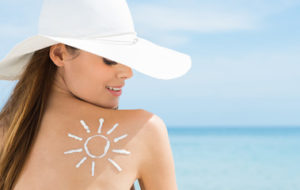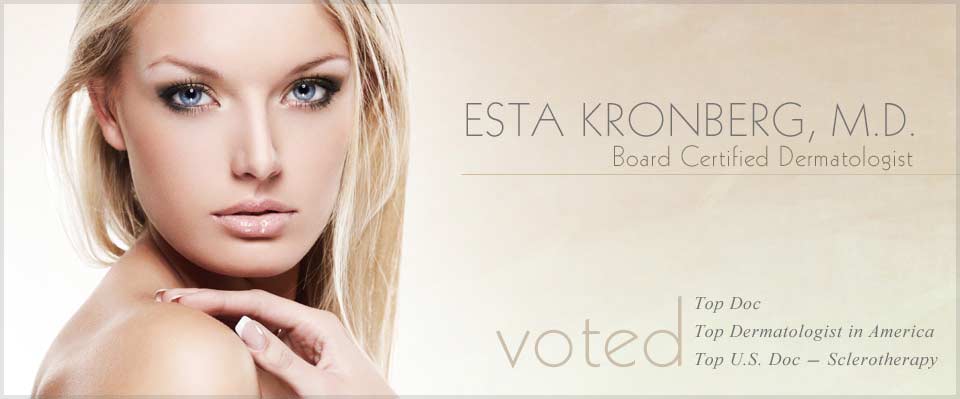 In Houston, there’s no shortage of sunny days, especially now that we’re just about in summer. You want to be out and about during the glorious sunny days — on a boat, on the golf course, in the outfield at an Astros game, etc.
In Houston, there’s no shortage of sunny days, especially now that we’re just about in summer. You want to be out and about during the glorious sunny days — on a boat, on the golf course, in the outfield at an Astros game, etc.
But what you don’t want is to increase your chances of skin cancer when you’re out in the sun. Dr. Kronberg has vast experience spotting and treating skin cancer. But it helps that you know some things about your skin, sunscreens, and skin cancer, so here are a few questions. See if you know all of them.
Should your sunscreen have UVA, UVB, or both?
The difference in sunscreens can be confusing. But it’s not that complicated. Simply buy sunscreen labeled “broad-based” or for “both UVA and UVB rays.” Initially, the thinking was that only UVB rays were dangerous, as those are the rays that affect the epidermis. UVB rays cause sunburns. But now we know that UVA rays are doing their damage from below. They penetrate into the dermis, the skin’s second layer, causing skin aging and the beginnings of melanoma and other skin cancers. So, while UVA rays don’t make you peel, they could be doing even worse things in the dermis.
How much is SPF needed?
SPF is an area of confusion, and this is where sunscreen makers can get a little cheesy. People think that the more SPF, the better, and they pay through the nose for it. But the reality is that over an SPF of 30, the difference is only a couple percent in the sun blocking ability. Those SPFs that claim 50 and higher are probably just setting you up to pay more, so if you see an SPF 100, it’s bogus. The recommendation is to use sunscreens of 15 SPF and higher.
Is skin cancer the most common form of cancer?
This is true. It is estimated that one in five Americans will develop skin cancer in their lifetime. More than 8,500 people in the U.S. are diagnosed with it every day! Probably double that or more are undiagnosed.
Will I die if I get skin cancer?
Although it is common, as noted above, skin cancer isn’t the biggest killer. If you have your skin checked regularly by Dr. Kronberg, she can spot any skin cancers early enough that their treatment is almost always successful.
Does sunscreen prevent skin cancer?
Sunscreen helps block the rays that lead to skin cancer, but just because you have on sunscreen doesn’t mean you can spend every waking minute in the sun without repercussions. Sun damage is cumulative. Plus, no sunscreen, no matter the SPF, can block all of the UV rays contacting your skin.
If you have lots of moles, do you have a higher risk of melanoma?
Although moles don’t usually turn into skin cancer, there is a correlation between moles and developing melanoma. People with moles, especially large ones, have a higher risk of melanoma. The threshold seems to be around 50 — if you have more than 50 moles on your skin, your risk of skin cancer is higher.
So, get out there and enjoy the sunny summer days in Houston. But be conscious of your skin and skin cancer. And schedule your once-yearly skin checkups with Dr. Kronberg. Call to make an appointment, 713-771-8941.





No comments yet.